Pagan Forms of Pleasure - Banned
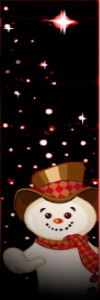
In the long dark days in the Northern Hemisphere we need something to mark the turning of the year, often to cheer us up, and pragmatic humans have created winter holidays and celebrations all round the world.
For Christians it is a time to celebrate the birth of Christ, for some humanists it is suitable to remember Newton's birthday on 25th December, others celebrate Germanic Yuletide and others witness the Solstice solar standstill event flocking to ancient monuments as they believe their ancestors did.
On 25 December 1656, an MP in the House of Commons complained of getting little sleep the previous night because of the noise of their neighbours’ “preparations for this foolish day…”.
Many are familiar with Cromwell's apparent ban of 'NO' on all Christmas joy but go to No. 5 on the list for a different take on the use of a ban.
Thus we learn how we carry out this celebration varies. Some see it as a time to fast, others as a time to feast. There is no 'right' or 'wrong' way, just 'your' way and 'my' way.
No. 1. Pork Pies.
Christmas pork pie making today in our house - to celebrate and get in the mood here is a fact... which makes me so glad we live in 21st century.
In 1644, Oliver Cromwell banned pie as he decided it was a "pagan form of pleasure".
It wasn't a complete and utter ban on pies, though - just a ban on Christmas celebrations and foods that were associated with the "pagan" holiday, such as mince pies, turkey, and Christmas ale.
We learn from Historic England -
From 1656, legislation was enacted to ensure that every Sunday was stringently observed as a holy day - the Lord's Day. By contrast, shops and markets were told to stay open on 25th December, and in the City of London soldiers were ordered to patrol the streets, seizing any food they discovered being prepared for Christmas celebrations.
I posted this two years ago, but just discovered the coincidence that we are making pork pies again on the same date this year - 2019. NJ.
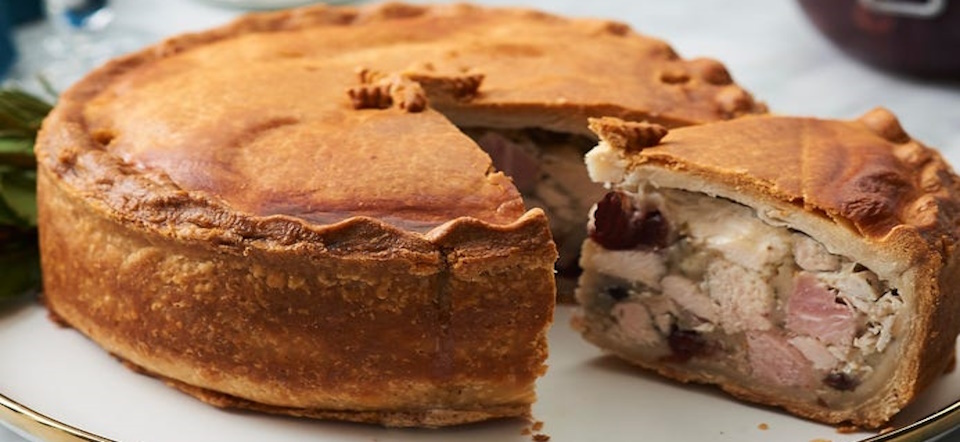
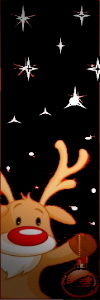
No. 2. Decorations.
No. 1 harked back to Cromwell, with this one we are into the 21st century nay-sayers.
In 2017 a Cornish school decided to abandon a nine year tradition of the local children putting their decorations on the community village tree. The parents took matters into their own hands and the tree was dressed eventually.
And in 2019 decorations in a Kentish town were banned by the County Council because of Health and Safety fears, too late in November for the locals to plan an alternative.
So put up those decorations, bring in the Holly and Ivy and have a lovely light Christmas. May your baubles and bling brighten up your days in the darkness of winter.
Wikipedia shares this: During the atheist Soviet regime in Russia a 1931 copy of the magazine Bezbozhnik, published by the League of Militant Atheists, depicted an Orthodox Christian priest being forbidden to take home a tree as Christmas was banned under the Marxist-Leninist rule. | 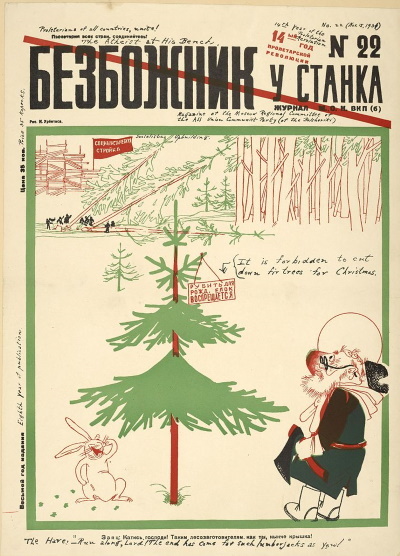 |
| The 'golden apple' spiked with cloves fills the air with spicey aromas, warding off illness and evil. Evergreen trees remind us that the sun is gaining in strength again and spring is not long off. 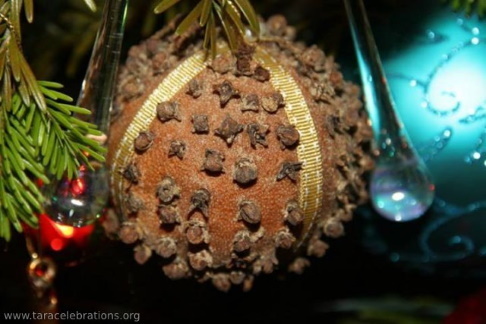 | 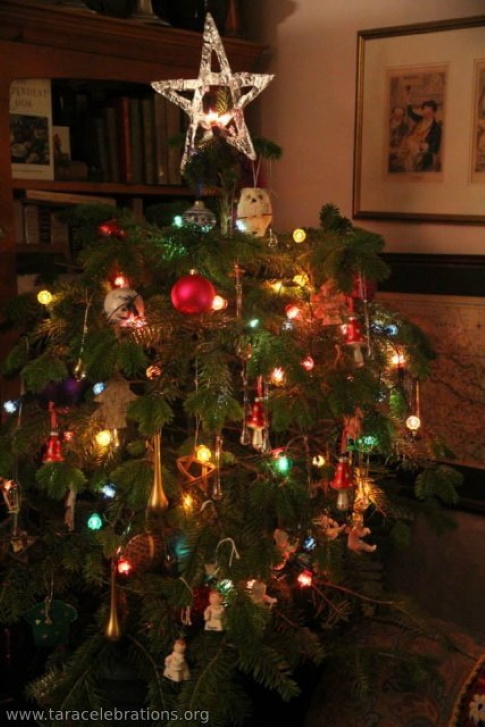 |
In Dublin the decorations are rock and roll.. Dublin Lights 2019...
No. 3. Special symbolic foods.
Watching the Christmas cake being 'fed' with the weekly sherry treat, wondered what foods we had lost or had been forbidden - found this - King Cake.
Linked to Mardi Gras this may well be the Christianisation of earlier traditions.
| With the atheistic Cult of Reason (1793) in power during the era of Revolutionary France, Christian Christmas religious services were banned. The Three Kings cake was renamed the "equality cake" under anti-clerical government policies. Galette des Rois became Galette de l'Egalité. | 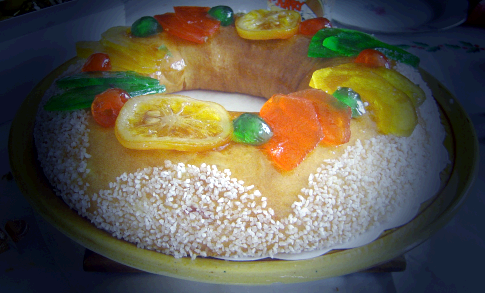 |
From the website French food in the U.S. has more about the Galette....
"THE FRENCH CELEBRATION: HOW IT WORKS
The Galette des Rois is a way for French people to celebrate the Epiphany, the arrival of the Three Wise men (Magi). Every year, on January 6th, people gather pour tirer les rois, to find the kings. The traditional galette is cut in a very specific number of slices: one slice for each person sitting at the table plus one. The extra slice is symbolic for the first poor person passing by.
The youngest person in the room goes under the table, and announces who gets the next slice. The youngest person is said to be the most innocent one and therefore fair in the distribution of the slices. Such an importance is given to the distribution because of the lucky charm, la fève, hidden in the galette.
Initially, the lucky charm was a bean but it has since evolved and was replaced at the end of the 19th century by porcelain trinkets, and today porcelain or plastic trinkets. Today, the diversity of lucky charms is so important that people collect them."
Thanks to Anne for pointing out that in Spain the cake is called the Roscón de Reyes.
No. 4. Carol Singing.
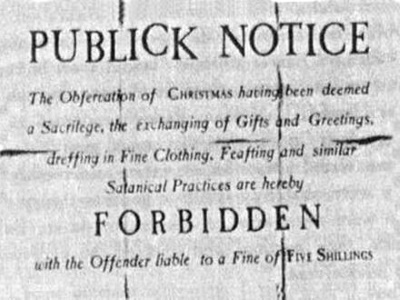
Back to Oliver Cromwell and the 17th century when Christmas Carols were banned. Singing at Christmas was a sin, not just a decadent excess.
Such carols as the Holly and the Ivy, which celebrate the evergreens in the heart of winter disappeared 'underground'.
More on the Irish holly traditions here - Blog: Cuilenn - Holly
In the United States some of the devout Puritan settlers in Massachusetts Bay called Christmas 'Foolstide' .... and in Boston this notice appeared....
Bing Crosby’s 1943 hit “I’ll Be Home for Christmas”. Concerned that the song could damage British morale during World War II, the BBC stopped broadcasting this favourite.
One of the oldest Irish carols (believed to come from the 12th century) is the Wexford Carol.
| Good people all, this Christmas time, Consider well and bear in mind What our good God for us has done In sending his beloved son. With Mary holy we should pray, To God with love this Christmas Day In Bethlehem upon that morn, There was a blessed Messiah born. The night before that happy tide, The noble Virgin and her guide Were long time seeking up and down To find a lodging in the town. But mark how all things came to pass From every door repelled, alas, As was foretold, their refuge all Was but a humble ox's stall. Near Bethlehem did shepherds keep Their flocks of lambs and feeding sheep To whom God's angels did appear Which put the shepherds in great fear. | Prepare and go, the angels said To Bethlehem, be not afraid For there you'll find, this happy morn A princely babe, sweet Jesus, born. With thankful heart and joyful mind The shepherds went the babe to find And as God's angel had foretold They did our Saviour Christ behold Within a manger he was laid And by his side the virgin maid Attending on the Lord of Life Who came on earth to end all strife. There were three wise men from afar Directed by a glorious star And on they wandered night and day Until they came where Jesus lay And when they came unto that place Where our beloved Messiah lay They humbly cast them at his feet With gifts of gold and incense sweet. |
Click to hear Libera sing the Wexford Carol 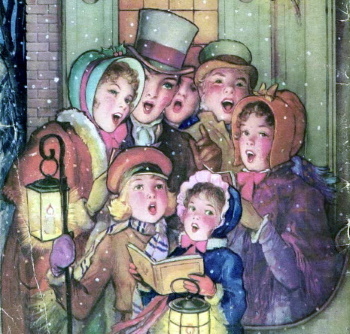 | Ó, tagaig' uile is adhraigí An leanbh cneasta sa chró 'na luí Is cuimhnígí ar ghrá an Rí A thug dár saoradh anocht an Naí. 'S a Mhuire Mháthair i bParrthas Dé, Ar chlann bhocht Éabha guigh 'nois go caomh, Is doras an chró ná dún go deo Go n-adhram' feasta Mac Mhuire Ógh. I mBeithil thoir i lár na hoích' Ba chlos an deascéala d'aoirí, Go follas don saol ón spéir go binn Bhí aingle 'canadh ó rinn go rinn. "Gluaisig' go beo," dúirt Aingeal Dé, "Go Beithil sall is gheobhaidh sibh É 'Na luí go séimh i mainséar féir, Siúd É an Meisias a ghráigh an saol." |
No. 5. Christmas Ales
Here's a reversal to the usual bans of 'do not' enjoy these pagan pleasures...
In Viking lands, in the 10th century, it was illegal to fail to make a Christmas Ale.
The Scandanavians brewed their barley based Jul to encourage the sun to return to it's summer strength and Gods and Goddesses of fertility for the coming year's harvest. Later, after Christianity became the 'state' religion, the pagan was assimilated into their Christmas traditions.
We have confirmation of this with the excavation of Viking brew houses - read more here about Viking brewers and their products.
Lars Marius Garshol has a wonderful blog about the history of these Christmas ales ...
Read more of Lars' information here
He also recounts this conversation he had in Bergen one year: Him: "My grandfather used to brew his own beer, you know." Me: "Really?" | 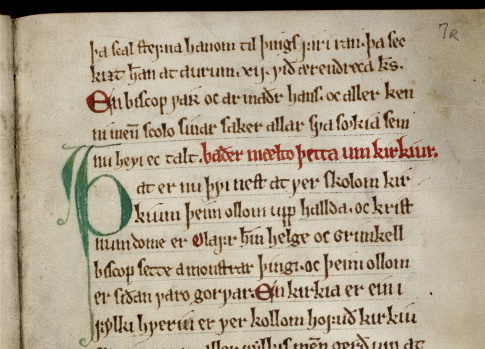 |
According to several internet sources:
A translation of a handwritten Gulating (Norwegian government) manuscript, currently held in Copenhagen’s Royal Library, reads as follows:
“Yet another beer brew we are required to make, man and wife from equal amounts of malts, and to bless it Christmas night in thanks to Christ and St. Mary, for a good year and peace.
If this is not done, three marks must be paid to the bishop. But if someone sits three winters without doing so, or cannot pay the fees that we have added for our religion, and this can be proven, then he has forfeited every penny of his worth. The king shall have half, and the bishop the other half. But he may confess his sins and make church penance and stay in Norway. If he will not he shall leave the realm of our king.”
No. 6 Yule Lads

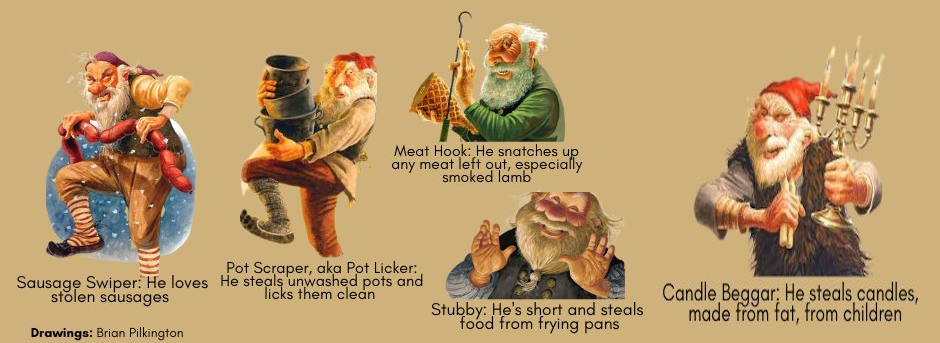

Iceland children were warned if they were naughty they would be visited by one of the lads and terrible events would occur. The 13 Yule Lads live together in a cave, hiding in the mountains - or sometimes coming over the ocean. They visit during the night. Children place one of their shoes on the windowsill each day. For good boys and girls, the Yule Lad will leave sweets. For the naughty there will be rotting potatoes.
But the scary stories got out of hand and in 1746, the Danish king officially banned the telling of spine-tingling stories of monsters to discipline your offspring. But they didn't go away, just became more benign and human.
Written in 2017 and 2019 & 2023 by Nora J





